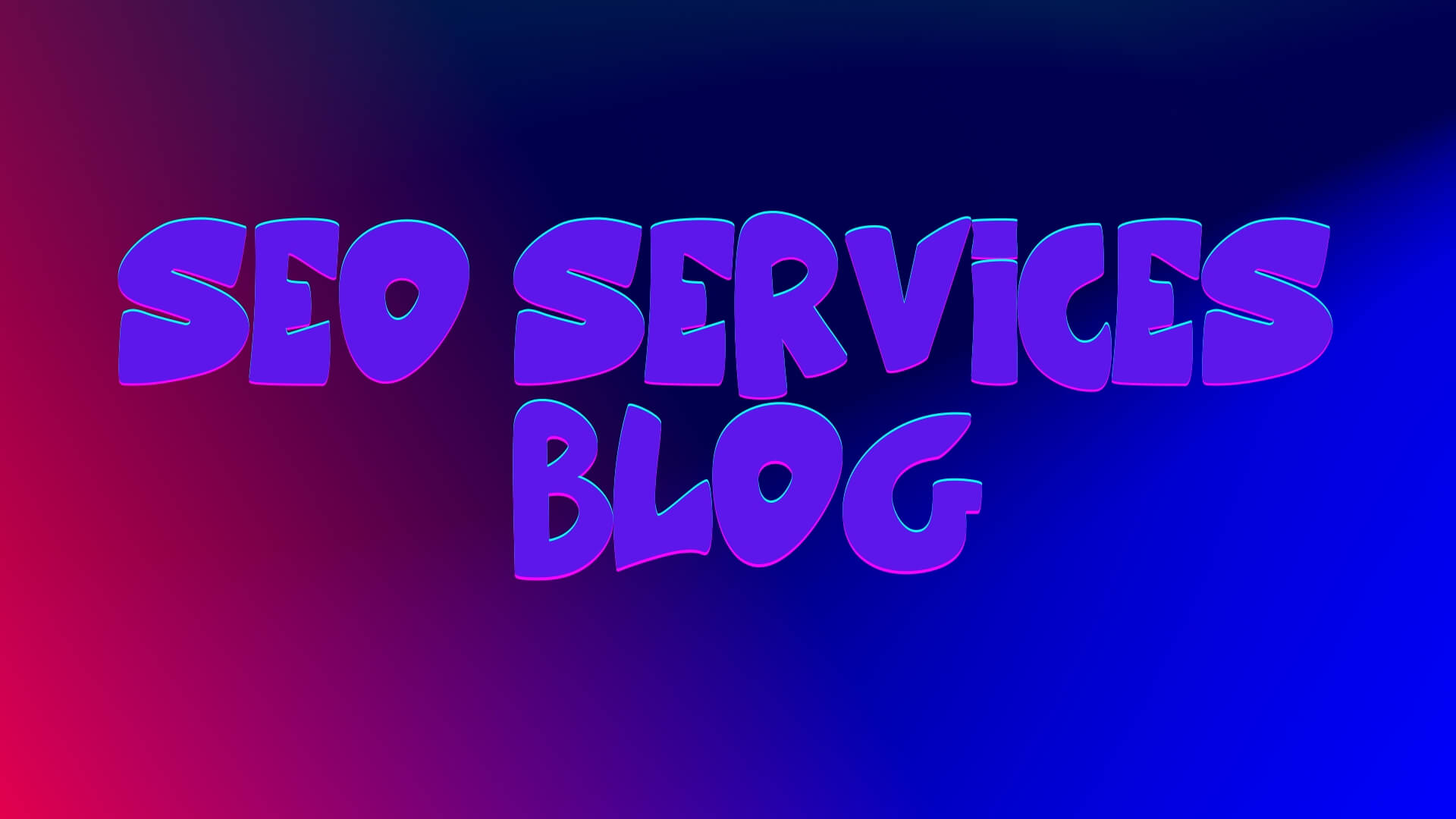Introduction to SEO Services Blog
In the digital marketing space, maintaining a strong online presence is essential. One way businesses stay informed and competitive is through an SEO services blog. These blogs offer valuable insights, updates, and practical advice tailored to help website owners and marketers enhance their SEO performance. Whether you’re new to search engine optimization or an experienced professional, regularly reading an SEO services blog provides clarity, context, and current best practices. This guide will explore what an SEO services blog is, why it matters, how to start one, and what kind of content it should include.
Why an SEO Services Blog Matters
Staying Updated With Industry Trends
The SEO landscape changes frequently. Algorithm updates, new ranking factors, and evolving user behaviors can impact your visibility. An SEO services blog helps you stay informed.

Building Credibility and Authority
A consistently updated blog shows potential clients that you understand SEO. It can establish your business as a reliable source for information and services.
Supporting Your SEO Strategy
Blogs themselves are great for SEO. They provide fresh content, internal linking opportunities, and keyword-rich pages that attract traffic.
What to Include in Your SEO Services Blog
Technical SEO Topics
- How to fix common crawl errors
- Understanding Core Web Vitals
- Mobile-first indexing explained

Delivering clear, practical SEO advice to help your business grow and rank higher in search results.
On-Page and Content Optimization
- Writing effective meta titles and descriptions
- Structuring blog posts for readability and SEO
- Optimizing images and media
Off-Page SEO Insights
- Link-building strategies that work
- Social signals and brand mentions
- Local SEO techniques
Tools and Case Studies
- How to use Google Search Console
- Real-world examples of SEO success
- Tool comparisons (SEMrush vs Ahrefs, etc.)
Tips for Small Businesses
- Local listing optimization
- Budget-friendly SEO tactics
- DIY audit guides

How to Start an SEO Services Blog
Step 1: Define Your Audience
- Are you writing for small business owners, marketing managers, or other SEO professionals? Tailor your content accordingly.
Step 2: Choose Relevant Topics
- Keyword research is key. Focus on queries your target audience searches for. Use tools like Google Trends and AnswerThePublic.
Step 3: Create a Content Calendar
- Plan your posts ahead of time. Mix evergreen content with timely updates to keep your blog fresh.
Step 4: Optimize Every Post
- Include keywords naturally. Use proper headings, internal links, alt tags, and ensure mobile-friendliness.
Step 5: Promote Your Blog
- Share on social media, include posts in newsletters, and consider collaborations or guest blogging.
Best Practices for Managing an SEO Services Blog
Consistency Is Key
Update your blog regularly. Search engines and readers alike value fresh, up-to-date content.
Monitor Performance
Track metrics like traffic, bounce rate, and conversions using tools like Google Analytics.
Keep Content Human-Friendly
Avoid keyword stuffing. Focus on solving problems, answering questions, and providing clear, helpful information.
SEO Services Blog for Different Business Types
Freelancers and Consultants
Your blog can be a portfolio. Share case studies, client wins, and how-tos.
Agencies
Use the blog to showcase your team’s expertise, methodologies, and unique value propositions.
E-Commerce Sites
Write about product optimization, seasonal SEO strategies, and schema markup.
Common Mistakes to Avoid
Over-Optimization
Stuffing your blog with keywords can reduce readability and lead to penalties.
Ignoring Mobile Experience
Ensure your blog is responsive and loads quickly on all devices.
Skipping Proofreading
Typos and errors can undermine your credibility. Always review your work.
The Role of an SEO Services Blog in Modern Digital Marketing
An SEO services blog serves as a valuable resource for businesses and marketers seeking to understand, implement, and optimize their search engine strategies. Beyond just a marketing tool, it acts as a knowledge hub where readers can learn about the latest SEO trends, techniques, and best practices.
Building Authority and Trust
Consistently publishing informative and well-researched content on an SEO services blog helps establish your website as an authority in the SEO field. This credibility encourages visitors to trust your brand, increasing the chances they will use your services or recommend you to others. Additionally, an active blog signals to search engines that your website is regularly updated with fresh content, which can positively impact your rankings.
Educating Your Audience
An SEO services blog can demystify complex SEO concepts for beginners and provide advanced strategies for experienced marketers. Content can range from basic tutorials and tool reviews to case studies and industry news, catering to a wide audience.
Providing educational content also helps potential clients understand the value of SEO services, making them more likely to invest in your offerings.
Enhancing SEO Through Targeted Content
Publishing content around relevant keywords related to SEO services naturally improves your website’s SEO profile. Blogs allow you to target long-tail keywords and specific search queries that potential clients may be using.
For example, topics like “how to conduct a site audit,” “benefits of link building,” or “local SEO tips” can attract organic traffic and generate qualified leads.
Encouraging Engagement and Interaction
A blog encourages visitors to engage through comments and social sharing, fostering a community around your brand. This engagement can provide feedback, build relationships, and increase your online visibility.
Including calls to action (CTAs) within blog posts, such as subscribing to newsletters or requesting consultations, helps convert visitors into leads.

Tips for Running an Effective SEO Services Blog
To maximize the impact of your SEO services blog, consider the following:
-
Consistent Posting Schedule: Regular updates keep readers coming back and improve SEO.
-
Quality Over Quantity: Focus on detailed, accurate, and actionable content rather than numerous superficial posts.
-
Optimize Each Post: Use on-page SEO best practices like keyword placement, meta descriptions, and internal linking.
-
Visual Content: Incorporate images, infographics, and videos to make posts more engaging.
-
Promote Your Content: Share posts on social media, email newsletters, and industry forums to increase reach.

Common Challenges and How to Overcome Them
Maintaining an SEO services blog is not without challenges. Common issues include content fatigue, keeping up with SEO changes, and generating consistent traffic.
To overcome these:
-
Plan Ahead: Use editorial calendars to schedule topics and deadlines.
-
Stay Updated: Follow SEO news sources and adapt your content accordingly.
-
Leverage Analytics: Monitor blog performance to identify popular topics and areas needing improvement.
-
Engage Guest Experts: Invite guest posts from SEO professionals to diversify perspectives and share workload.
FAQs About SEO Services Blog
What is an SEO services blog?
An SEO services blog provides updates, tips, and strategies to help improve search engine visibility.
How often should I post to my SEO services blog?
Ideally, post weekly or bi-weekly to stay consistent and build a loyal audience.
What topics should I cover in my SEO blog?
Cover technical SEO, on-page tips, content writing, link building, and case studies.
Can a blog really help with SEO?
Yes, regular blogging improves keyword rankings, attracts backlinks, and supports site structure.
Should I hire a writer or do it myself?
If you’re short on time or expertise, hiring a writer with SEO knowledge is a good investment.

Conclusion
Maintaining an SEO services blog is one of the most effective ways to build trust, attract traffic, and improve your site’s visibility. Whether you’re running a business or working as a digital marketer, regularly sharing knowledge through your blog positions you as an authority. Focus on quality, consistency, and user value to see long-term results.

